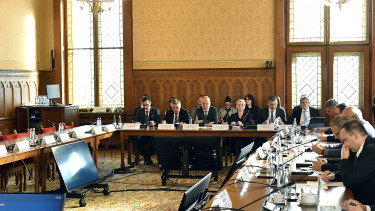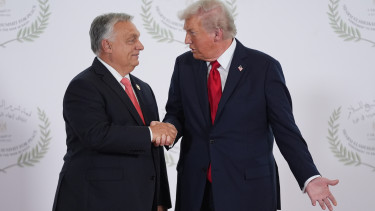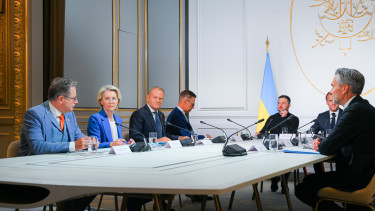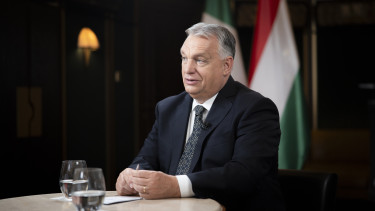No EU transfers to Hungary, Commissioner says seeing 2021 rule of law report

The European Commission will berate Hungary over a series of issues, including insufficient anti-corruption measures and the state of media freedom in the country, according to its 2021 report on the rule of law, Politico reported early on Tuesday citing a sneak preview of the document.
“The European Commission sees systemic problems with the rule of law in Hungary, including the justice system and the fight against corruption, and until Hungary makes in-depth reforms in the two relevant fields, no EU funding will arrive in Hungary,” European Commissioner for Justice Didier Reynders has since told hvg.hu’s EUrologus in an interview.
As reported earlier by Portfolio, the delay in approving Hungary’s EUR 7 billion recovery plan was allegedly in connection with the contents of the rule of law report released today, in addition to insufficient measures taken by the Hungarian government. The Commission now has good reason to withhold EU transfers to Hungary and further delay accepting the recovery plan and the new Operative Programmes. In a strong statement in June, the European Parliament has also called on the Commission not to approve Hungary’s and Poland’s recovery plans and not to make transfers to these two countries until deficiencies in rule of law and human rights are addressed.
This means the Commission’s rule of law report could provide a reason to withhold EU transfers to Hungary for a long time to come.
Both Finance Minister Mihály Varga and Gergely Gulyás, Minister in charge of the Prime Minister’s Office, have hinted at this scenario recently. Varga said Hungary’s general government is prepared for the event no EU transfers whatsoever arrive in Hungary this year, while Gulyás said reaching an agreement with the Commission could take up to 18 to 24 months and the government was “patient”.
The findings of the 2021 Report on the Rule of Law include:
- “Independent control mechanisms remain insufficient for detecting corruption. Concerns remain regarding the lack of systematic checks and insufficient oversight of asset and interest declarations.”
- “While the indictment rate for corruption cases is high, and some new high-level corruption cases were opened since 2020, the track record for investigations of allegations concerning high-level officials and their immediate circle remains limited.”
- “The implementation of the anti-corruption strategy is ongoing but its scope remains limited. Shortcomings persist as regards political party financing, lobbying and ‘revolving doors’. Risks of clientelism, favouritism and nepotism in high-level public administration as well as risks arising from the link between businesses and political actors remain unaddressed.”
- “Media pluralism remains at risk. Concerns persist with regard to the independence and effectiveness of the Media Authority, also in the light of the Media Council’s decisions leading to independent radio station Klubrádió being taken off air.”
- “The new rules allowing for appointment of members of the Constitutional Court to the Supreme Court (Kúria) outside the normal procedure, have been put in practice, and enabled the election of the new Kúria President, whose position was also endowed with additional powers. This Kúria President was elected despite a negative opinion of the National Judicial Council.”
No EU funding for Hungary
The European Commission sees systemic problems with the rule of law in Hungary, including the justice system and the fight against corruption, and until Hungary makes in-depth reforms in the two relevant fields, no EU funding will arrive in Hungary, European Commissioner for Justice Didier Reynders told hvg.hu’s EUrologus in an interview.
According to Reynders, the Commission informed the Hungarian government about this as early as last year, but this has been the strongest public message not to expect EU funding for the time being, a message delivered just as the Commission is releasing its annual rule of law report.
As there are systemic problems with the rule of law in Hungary, the European Commission is ready to use all tools at its disposal, including the suspension of EU transfers, in order to protect democracy, Reynders said.
The Commission will not approve Hungary’s recovery plan before the Orbán administration carries out judicial reforms and gives sufficient guarantees that national authorities will investigate and prosecute high-level corruption cases revealed by the European Anti-Fraud Office (OLAF), the Commssioner said.














